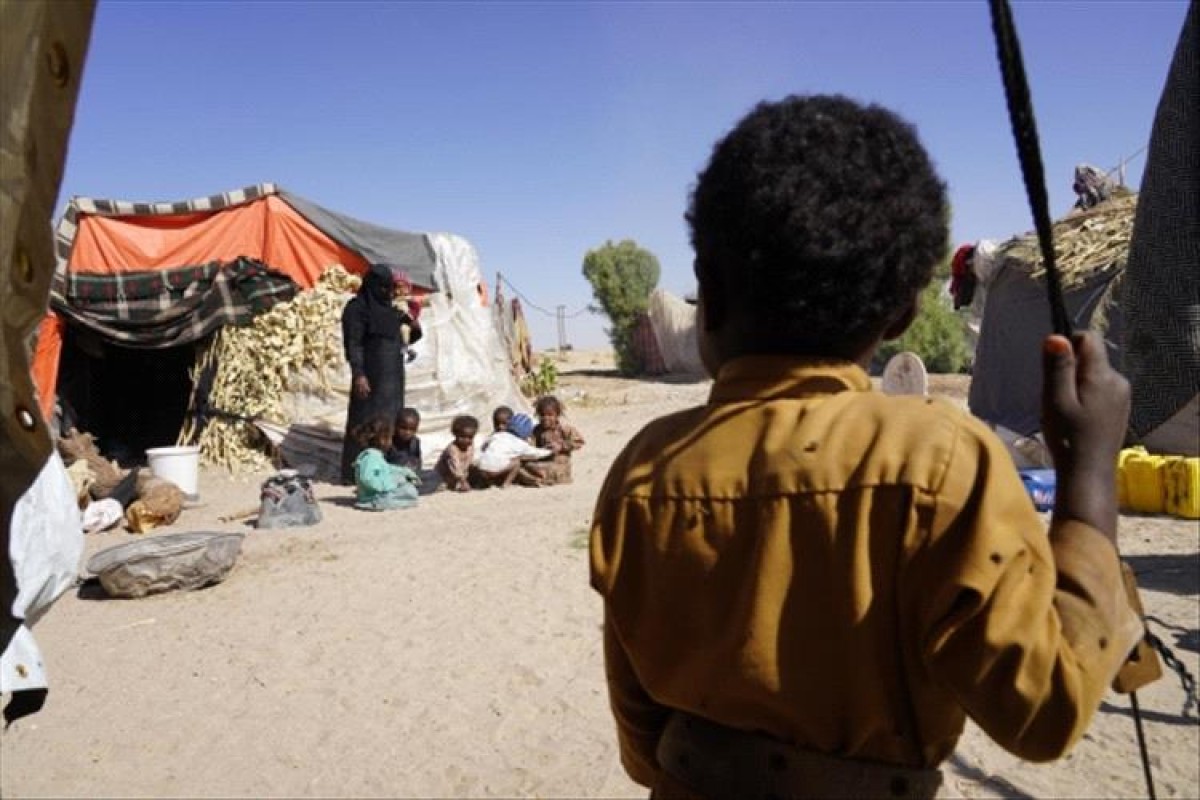Government report: More than a million displaced people face the risk of food insecurity


A government report revealed that more than a million internal displaced people in Marib Governorate face the risk of food insecurity, and in need of urgent humanitarian assistance.
The executive unit of the administration of the displaced camps in Marib Governorate said in a report that one million and one hundred thousand displaced people, equivalent to forty -eight percent of the total displaced in the province, suffer from food insecurity.
The report added that the crisis is more exacerbated by the women and children categories, and that the displaced families face many challenges, which requires an urgent response to providing food and basic aid, and providing a reserve stock to face emergency situations.
The report indicated that more than a quarter of a million displaced people in Marib face the risk of expulsion from their rented housing, due to their inability to pay the accumulated rents, as a result of the sharp economic deterioration and the collapse of the currency.
The Undersecretary of the Ma'rib Governorate, Abd Rabbu Moftah, had warned earlier that the situation warns of the occurrence of a humanitarian catastrophe and a familiarity with the displaced people, and indicated that 54,000 families represented 40 percent of the displaced people in the Ma'rib Governorate, in an urgent need for food aid, and their names were not included in the lists of the World Food Program. He warned of the continuation of the widening gap of poverty, the deterioration of the economic situation of the displaced.
The displacement camps in Marib include hundreds of thousands of fleeing due to the war and the crimes of the Houthi militia, who resorted to Marib Governorate and live in harsh conditions and worn housing in 203 camps and gatherings for the displaced deployed in the city and valley directorates.
The suffering of the displaced people in the displacement camps in Marib Governorate is not limited to their homes, but rather exceeds the main food of their children, especially with the high prices due to the fall of the exchange rate of the riyal against foreign currencies, the decline in humanitarian interventions of the organizations, and the irregularity of salaries.
Given this, some families, from the most needy, resorted to reducing the number of meals into two meals, where they combine breakfast and lunch, while some have only eating bread, legumes or tea in all their meals.